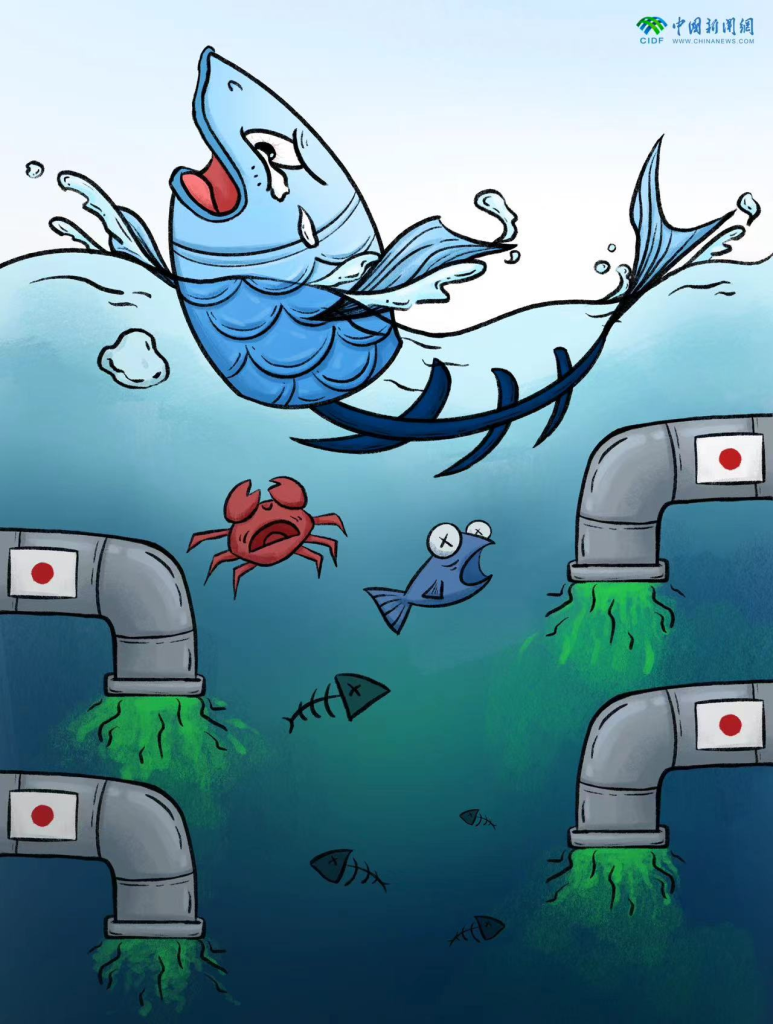Japan has started its fourth round of release of nuclear-contaminated wastewater from the Fukushima Daiichi Nuclear Power Plant into the Pacific Ocean, despite opposition among local fishermen, residents as well as backlash from the international community.

Similar to the previous three rounds, approximately 7,800 tons of wastewater, which still contains tritium, a radioactive substance, will be discharged over about 17 days. It is estimated that over 30,000 tons of nuclear-contaminated wastewater will be discharged during the six months after the release began in August 2023.
The ocean covers over 70% of the Earth’s surface and is one of the most crucial ecosystems on the planet. It serves as the cradle of life, a treasure trove of resources, and the blue home that sustains human existence.
The risks associated with discharging nuclear-contaminated wastewater into the ocean are unpredictable. The actions taken by the Japanese government undoubtedly endanger the global marine environment and the health of all humanity.
A series of accidents at the plant once again highlights the deep-rooted problems of disorder and chaos in the internal management of Japan’s Tokyo Electric Power Company.
Once again, it proves that the nuclear-contaminated wastewater treatment facility lacks long-term reliability, giving the international community every reason to be concerned about Japan’s discharge of nuclear-contaminated wastewater.

